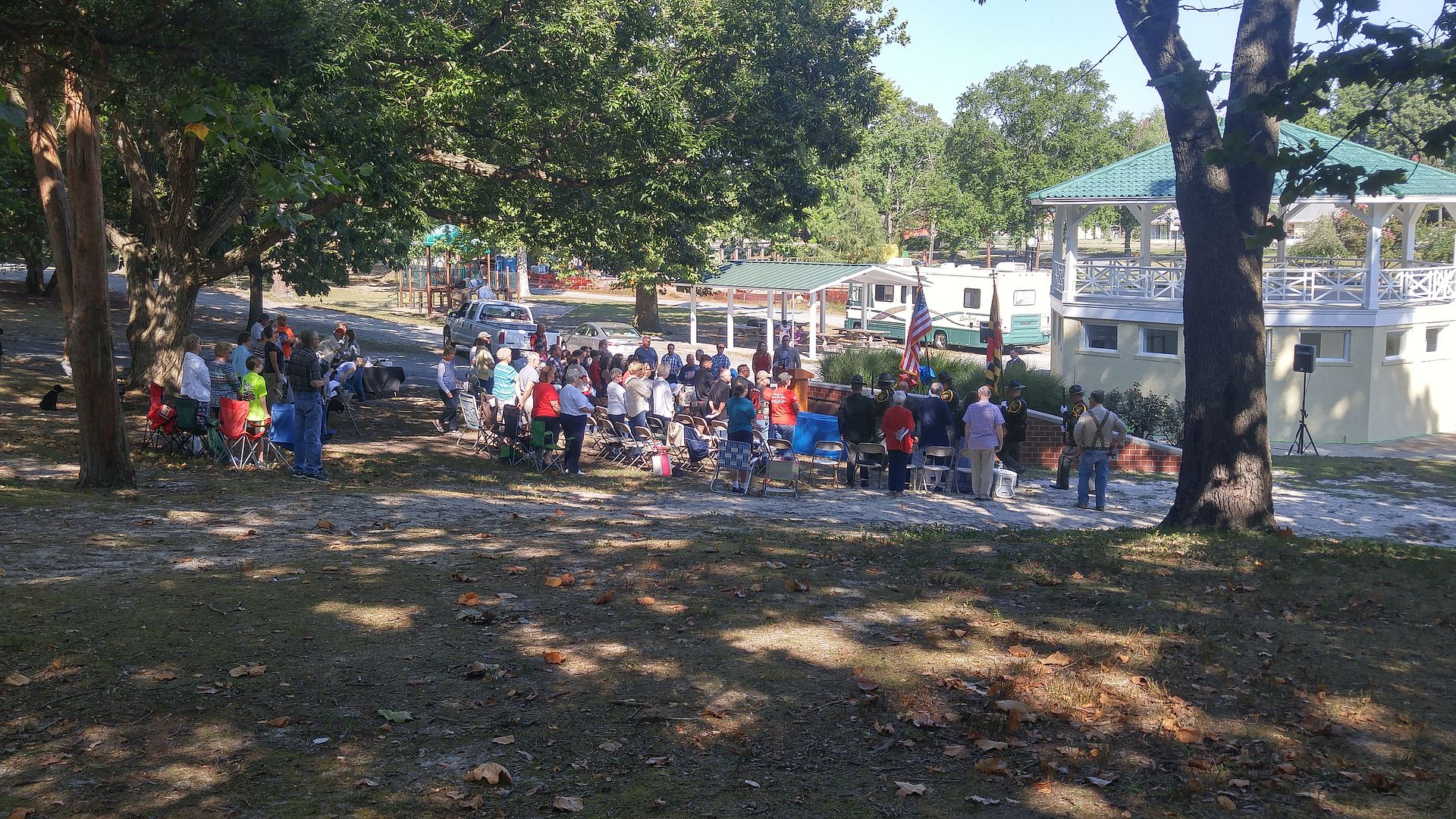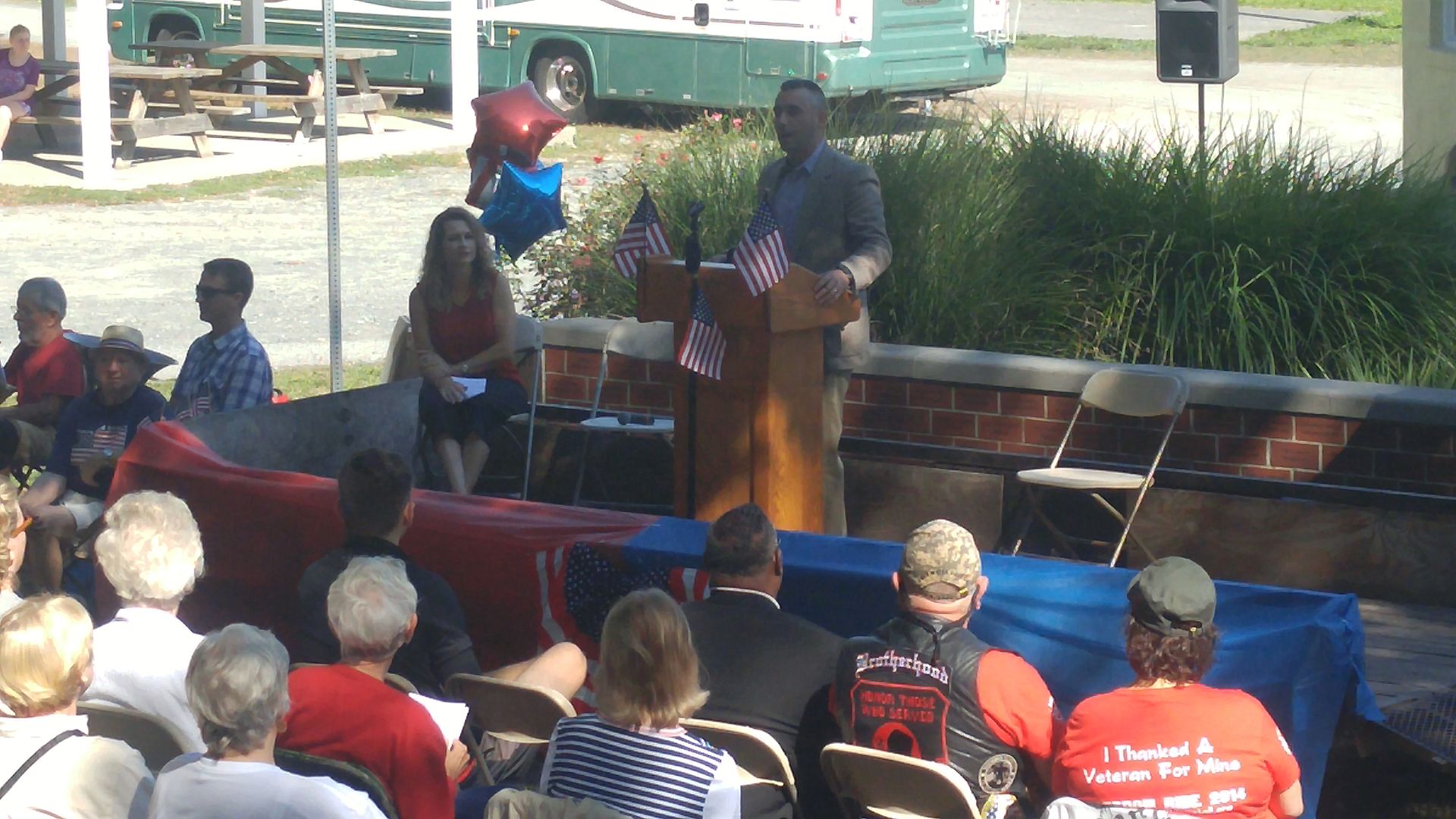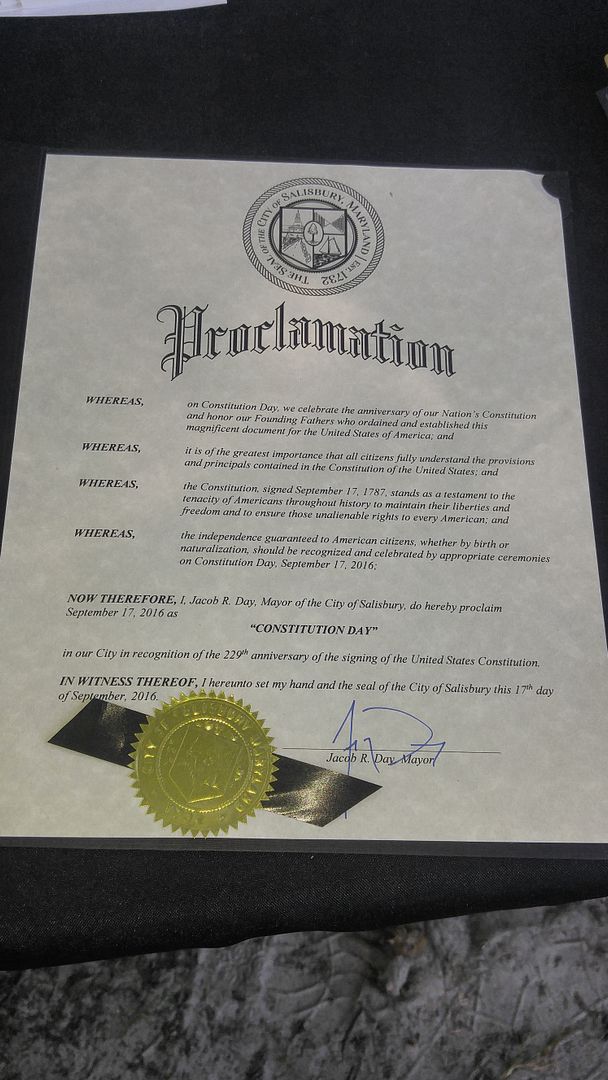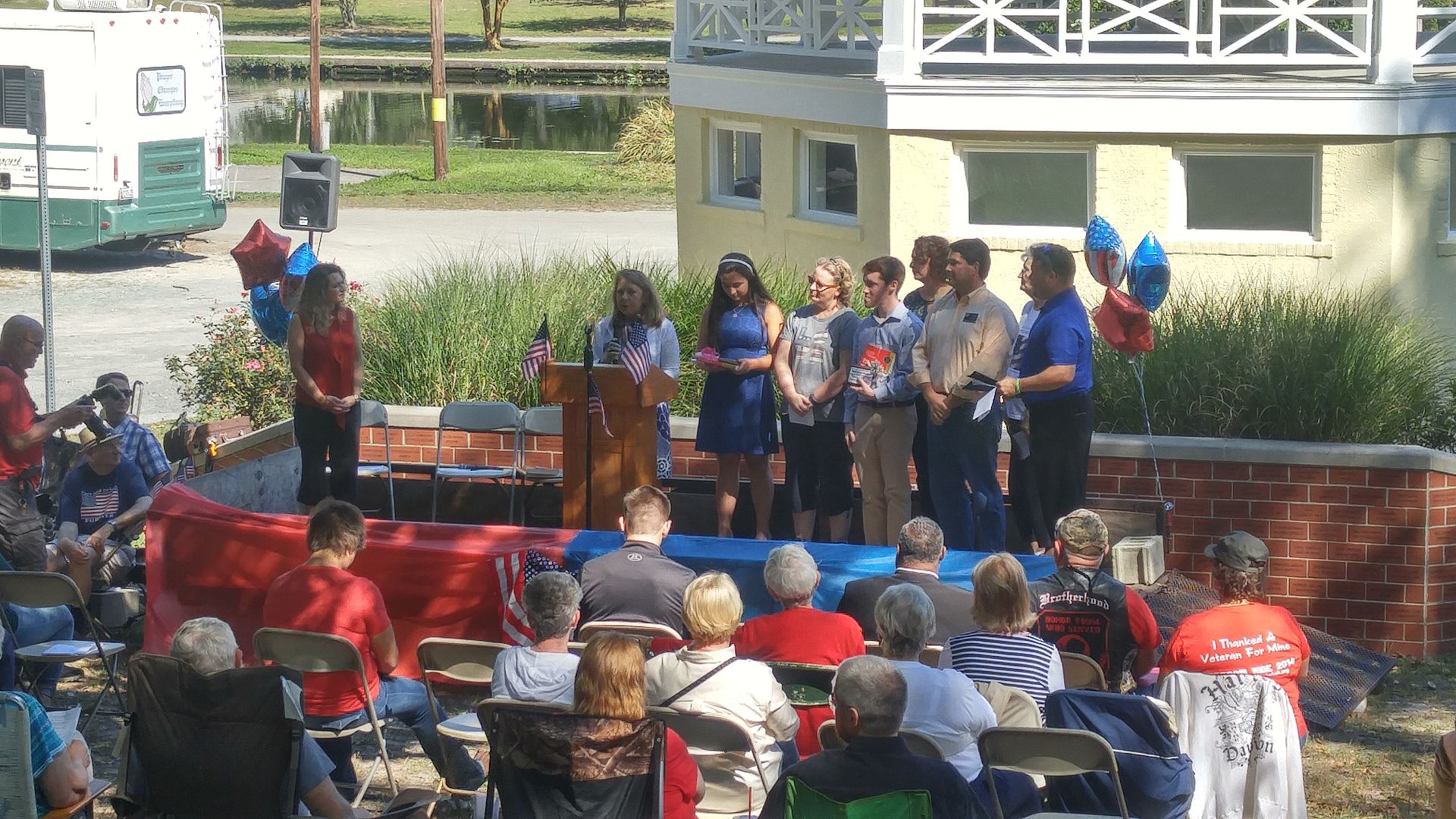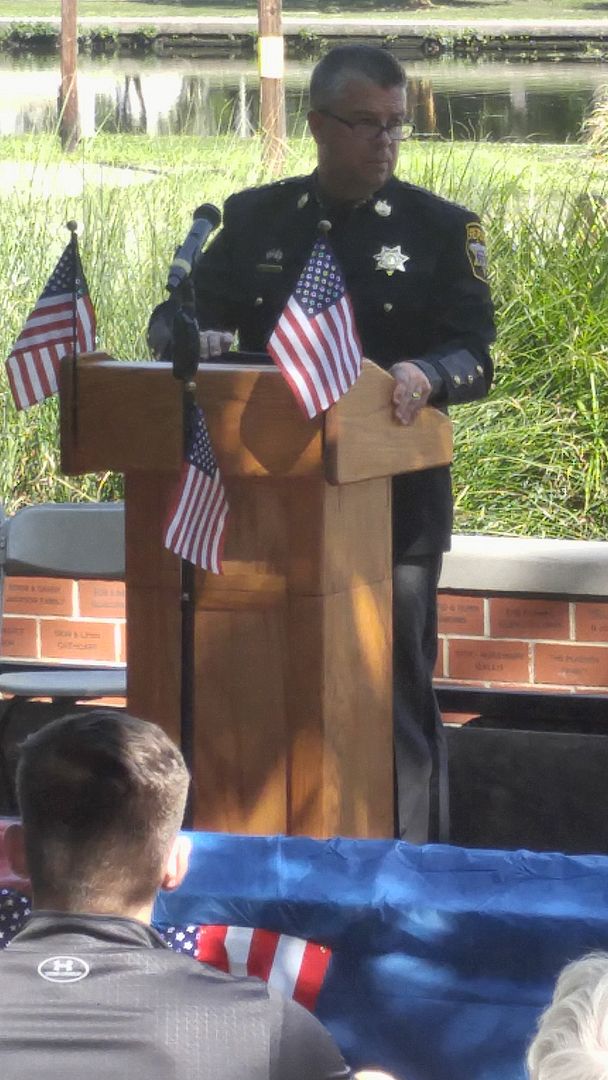After several days of trying to nail this busy lady down, I finally had the chance to speak with writer and author Diana West. You may recall her from the recent Turning the Tides 2013 conference, although I’ve actually linked to her website for some time.
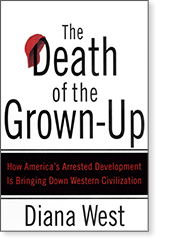 She is the author of The Death of the Grown Up: How America’s Arrested Development is Bringing Down Western Civilization (2007) and the forthcoming American Betrayal: The Secret Assault On Our Nation’s Character. Diana is also a syndicated columnist whose work appears in dozens of outlets around the country.
She is the author of The Death of the Grown Up: How America’s Arrested Development is Bringing Down Western Civilization (2007) and the forthcoming American Betrayal: The Secret Assault On Our Nation’s Character. Diana is also a syndicated columnist whose work appears in dozens of outlets around the country.
**********
monoblogue: We actually met last Saturday – I’m going to bring my readers up to speed – you and I met last Saturday at Turning the Tides and you did a talk on “Toward a Conservative Foreign Policy.” I noticed this morning that it’s now up on your website, which is very convenient for the readers. I guess the question I would start out with is that you’re more known as a cultural speaker, so how did you get put into talking about foreign policy?
West: Well, really it goes back to 9/11. That’s really when I started writing about how our culture was being changed by this conflict with Islam. And most writers, most thinkers, most pundits and politicians, (they) continued to look at the last decade as a decade of terrorism. Most of the voices you hear discussing how to keep America safe, defend American interests, and so on are really looking at this as how to combat attacks (such as) terrorist attacks (or) military attacks – and while those are, of course, important because no one wants to be attacked at an airport or a stadium – coming from a more cultural lens I started looking at this in terms of how we were being changed culturally by this conflict.
I guess the first part of my writing career definitely had a focus on culture, although I did cover politics as well, but again with a definite cultural emphasis. This past decade I have definitely been looking at the war as a cultural event, and that’s why I’m so interested in things like what’s known as “civilization jihad,” which is, again, the turning from within of our civilization.
monoblogue: Right. And as I read your book, which I did finish – it’s very good – I noticed in The Death of the Grown-Up you started out in the vein that you described, just talking about our culture, but then as the book wrapped up you interspersed a look at the Islamic effect on our culture. The book’s evolution mirrors what you just said…
West: Yes.
monoblogue: …where you started out as talking about culture but then wrapped in the element of Islamic terror after 9/11.
West: Yes. And there’s a backstory to that book, really, which I’m glad you brought up. It explains the way of thinking about some of these problems. I was actually thinking about that book and working on it before 9/11, and it would have been a very different book. It would have definitely outlined the cultural decline as I saw it in terms of this increasing emphasis on youth and this increasing fear and denial of adulthood, and what went with it.
After 9/11 – I was living outside New York at the time, in Westchester County about 45 minutes from Manhattan – after 9/11 happened I shelved the book because I thought ‘who cares, what does it matter?’ We’re in this terrible fight, we’ve been attacked, and trying to understand these new issues I put that project aside. A year or so later, it suddenly became very apparent to me that the cultural decline that I had been trying to work through had a terrifying application in the post 9/11 age. That was how the book became a description of where we had come in terms of an infantile culture and how dangerous that cultural development was for our chances in battling this totalitarian threat which, if you look back through Islamic history, the hallmark of non-Islamic populations living under Islamic law is really one you could describe as infantilized in the sense of not having full rights, not being allowed to speak out, being afraid – these are the hallmarks of non-Islamic populations across centuries, across cultures, across continents.
I looked at this and said, oh my gosh, we are ripe for this kind of takeover and indeed, I ask your readers to look at our speech codes that we willfully put on ourselves. We are afraid to discuss Islam in any kind of rational, logical, and truthful manner. I would ascribe that to this very infantilization that I tried to see in the culture. The book is an argument to see this development and understand how we have to overcome it if we’re going to withstand this.
monoblogue: Well, 9/11 kind of synthesized and crystallized your thesis then is what you’re saying.
West: Yes, I’m glad I didn’t write the book beforehand because I really felt that application was much more compelling – for me, anyway – and certainly seemed to have more significance for our future.
monoblogue: The other thing that’s interesting, and it’s a matter of how they paired the speakers up at the Turning the Tides Conference, was that you spoke right after Pamela Geller, and Pamela got most of the attention – and she’s the lightning rod for…
West: Sure.
monoblogue: …for pro-Islamic protests. But your message is almost as powerful as hers in the fact that, yes, this Islamic influence is not a good thing for America.
West: Well, I suppose that’s true. Of course, Pamela is a well-known activist at this point, and I think that as an activist she is certainly going to draw the attention of the CAIR demonstrators and things like that. I work strictly as a writer, journalist, and author, so I move in a different track although I would say we have similar goals and very often discuss similar topics so there is a commonality of theme here, but we have different roles and different careers.
monoblogue: That’s fine, but it seemed interesting to me – they’re actually out there protesting her and not you for your message, which – you kind of get to fly under the radar in a way.
West: I suppose so (laughs.) I work, perhaps, in more of the journalistic milieu – maybe it just doesn’t rile them up quite as much.
monoblogue: That’s all right (laughs), sometimes it’s good to be stealth. I’ve found that out myself. But when we heard you last Saturday, I noticed that you were coming in and saying ‘this isn’t really my forte, I hadn’t been thinking about that sort of thing as a broad foreign policy.’ And like I started out, it was interesting to hear you talk about that when you’re more known for culture. So how long did you have to prepare for this speech?
West: Oh, I guess I worked it out over about a week. I mean, in terms of – if you go to my website and comb through some of the back archives I have not written on culture per se for, really since 9/11. And while I definitely examine the cultural impact of war, I have also been looking very minutely and intensively – for example, in war policy, in military doctrine, in examining the wars in Afghanistan and Iraq – so I wasn’t quite the fish out of water that I may have made you think in terms of thinking about a foreign policy address.
What I was trying to say was, when I was asked to come up with a conservative foreign policy for the conference, I think I was asked because I’d been thinking through jihad, the Islamization of the United States military, which is something I write a great deal about (and) my sense of the futility, and indeed dangers, of nation-building in Iraq and Afghanistan. So what I was trying to explain was that I had not put these things together in the sense of a comprehensive political policy.
I think with that address, I kind of wish that Mitt Romney had made such a foreign policy address as mine, in terms of putting these various cultural and national security concerns together because I don’t think you can talk about – you can successfully talk about and battle the threats to our country in terms of terrorist events, in terms of a bad man with a bomb getting into a building, what we tend to do – and this gets back to what Pam is so good at, and others in this field, is understand that these actions (like) bringing bombs to a building are the expression of an ideology, and this ideology goes back to classical mainstream Islam. It is jihad, it is Islamic law to the entire world, to the caliphate – which is something else that I write about a lot – it is jihad to exert Islamic law over the world and everyone in it, including non-Muslims. And this is where we come in, and I’ve always felt that Islam itself doesn’t interest me, except insofar as the nexus between expansionist Islam and our life.
Where you come in to understand this is the impact of jihad and something called dhimmitude. Dhimmitude is the condition of the dhimmi, which are Christians and Jews living under Islamic law, and it is in effect a third- or fourth-class degree of citizenship. That’s where I’ve become interested in Islam; it is a cultural interest but, again, it also becomes a national security interest. In trying to knot this all together in a talk for a whole foreign policy address, of course it also involves things like border security and the importance of Congress becoming more involved in foreign policy. At this point, I think we have a very dictatorial foreign policy that is set at the White House, mostly, and Congress is merely there to rubber-stamp funding for whatever it is the President wishes to do.
These were some of the things I was trying to bring together into a more macro sense than I was accustomed to doing as a weekly columnist and almost daily blogger.
monoblogue: Right. And that’s something – I just happened to look (yesterday) morning and here’s the speech that you happened to give at Turning the Tides, which is very convenient. The website, by the way, is dianawest.net – I’ll plug that for you – and you also have the syndicated column.
West: Yes. I have the syndicated column and the speech actually was published at American Thinker as well. But mostly I write my column, which runs in something around 100 papers at this point, and I also write books. I have my new book coming out in May, which is called American Betrayal, which, again, is a foray into history, actually, and how we got into this condition we’re in. I think of it as a prequel to The Death of the Grown-Up, really; it goes deeper and back a little farther to kind of set things straight.
monoblogue: That’s good, I’ll be interested to see how that does when it comes out. Obviously you’ve been working hard on that because, I recall as I was getting this set up and talking to you for (this interview) that you originally had this coming out in April, but now it’s going to be May.
 West: Yes. (laughs) It’s been done for quite awhile. It’s a long book, and in talking about the old-fashioned way of doing things (referring to our small talk prior to the interview) publishers are doing things somewhat old-fashioned. It turns out that getting everything straight, typeset, and properly footnoted and everything just simply takes more time, so we had to push it off to May. But I do not believe there will be any further delays.
West: Yes. (laughs) It’s been done for quite awhile. It’s a long book, and in talking about the old-fashioned way of doing things (referring to our small talk prior to the interview) publishers are doing things somewhat old-fashioned. It turns out that getting everything straight, typeset, and properly footnoted and everything just simply takes more time, so we had to push it off to May. But I do not believe there will be any further delays.
It’s been done – actually it was turned in back in May of 2012, and we’ve been editing over the months and so on. Books just take time, especially a large book that is very heavily footnoted.
monoblogue: Chock full of information.
West: Yes it is! Definitely value for the dollar. (laughs) A heavily researched book; it’s no cut and paste job here.
monoblogue: And I would expect no less. It sounds like you’re a very thorough-type person, and that’s good. We need more of those on our side. We have to put up with a lot of lies from the other side, people who just make it up as they go along and don’t check their facts. It’s refreshing to see our side portrayed in that way. You’re crafting.
West: Thank you. Yes, I try very hard and try to be thorough and try to be correct because it is very important. And I also try to admit when I change my mind or make a mistake – I think that’s equally as important. That’s one complaint I have with general journalism is that there is very little interest in correcting mistakes, and also changing minds. Sometimes the facts appear and there is reason to reconsider, and that is actually, I think, a sign of human growth and not anything less.
People tend to get very entrenched in their views of the world and vested in them so it becomes very difficult to reconsider and reformulate policies, which is one of my complaints with, for example, the Bush administration over its period in Iraq and Afghanistan, and certainly the military over these many years of fighting the same war, even as it became more and more apparent that “winning hearts and minds” in the Islamic world was not going to happen short of conversion to Islam. It’s that clear-cut; there’s no room for wiggle here. It is an absolute brick wall in terms of trying to persuade or win over an Islamic culture to a Western way.
You would think after a decade of trying there would be some reconsideration here, but I think there’s even less willingness to consider a larger picture, much to the detriment of our country and just too many of our fellow citizens from the military.
monoblogue: Right, and in a way I can tie this to together to conclude it, this gets to be a battle between infantilization and maturity. We’re not showing the maturity to evolve our thought process as situations dictate.
West: That is certainly one way to think of it; it does seem to be that way. I think there’s also people with careers in mind, and reputations they’re too vainly wed to – these are some of the very human characteristics, yes, but I would say they are not of the more mature side. Certainly the ideal to which we aspire – and of course, we’re all human so there’s not some super standard that we all hit all the time every day – these are very serious problems and none of it is theoretical, none of it comes from an academic milieu where a theory can be argued.
We’ve been battle-testing these theories, which have led to loss of life, loss of limb, and tremendous losses to our national treasury, to our fitness of our fighting forces – I mean, it’s really been a cataclysmic decade and there’s really no end in sight (nor) any interest in looking back and actually saying what went wrong and how can we make it better for the future. I hope that that changes.
monoblogue: I hope it does too, and that actually turns out to be a good spot to wrap this up. Your book comes out in May, and I wish you the best of luck with it. I appreciate you taking the time to talk to me.
West: Thank you, Michael, I enjoyed it.
**********
We actually chatted for a few minutes after the interview, comparing notes on the conference and other topics. A thought we extended on during the impromptu conversation was regarding the process of writing her book since I obviously chose a different path in getting my book to market because I wanted it out before the 2012 election. It boggles my mind that her manuscript has taken so long in the editing process, although I’m sure verifying the footnotes is a tedious batch of work.
The key thing was that I learned a lot in speaking with Diana, and hopefully you did as well in reading this. I haven’t determined next week’s guest quite yet, so stay tuned.


